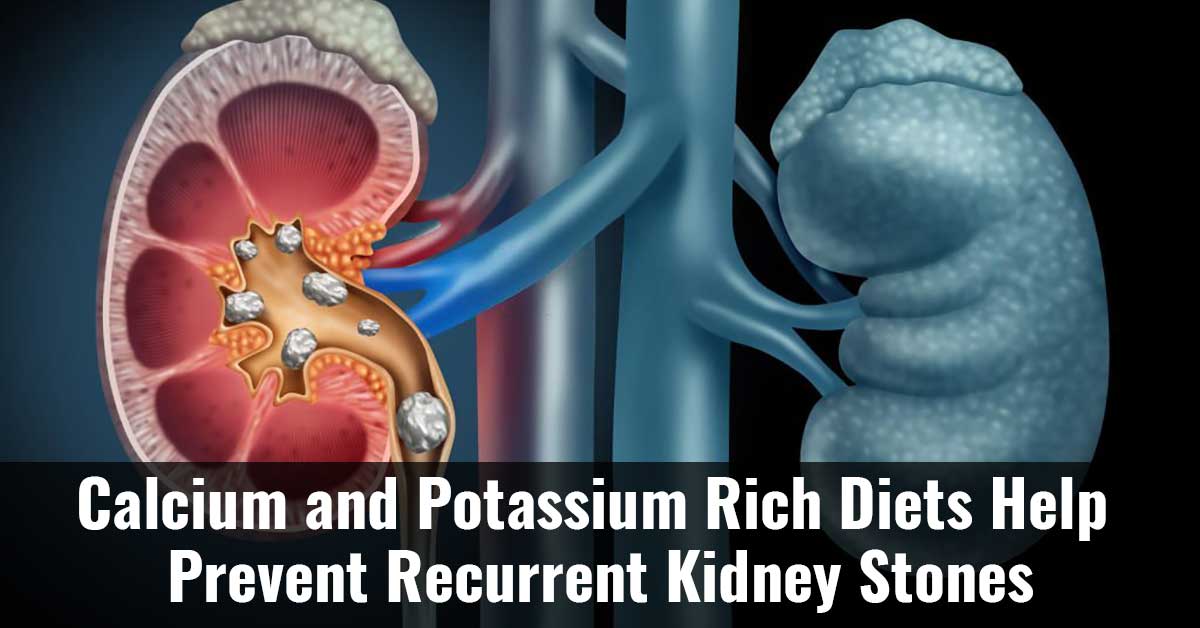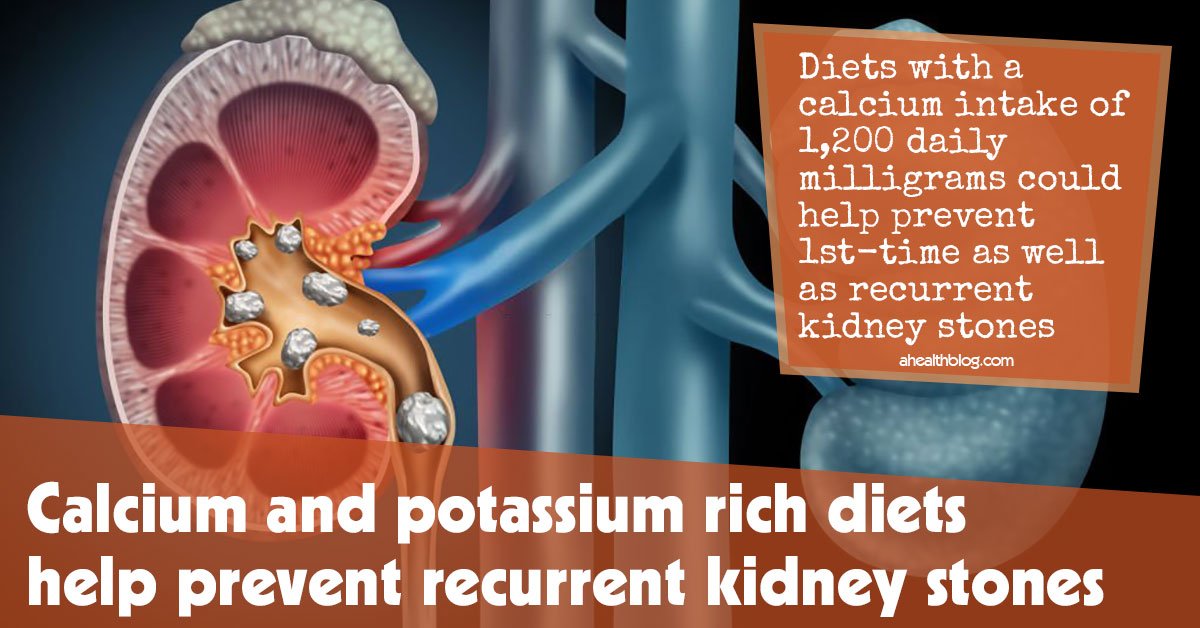Kidney stones not only result in severe pain but are also linked to chronic kidney disease, cardiovascular disease, and osteoporosis. There’s a 30% probability of experiencing another kidney stone within 5 years after suffering from a 1st-time kidney stone.
Diet changes are normally recommended for preventing recurrent kidney stones. There are however not many studies available relating to dietary changes for individuals who have 1 episode of kidney stone formation as opposed to individuals who have recurrent episodes.
Researchers devised a study to look into the impact of changes in diet. The results reveal that potassium and calcium-rich food diets can help prevent recurrent kidney stones.1✅ JOURNAL REFERENCE
DOI: 10.1016/j.mayocp.2022.04.016
Dietary factors were according to a questionnaire completed by 411 individuals who had suffered 1st-time kidney stones as well as a control group of 384 individuals. The results indicate that lower dietary potassium and calcium, in addition to lower intake of fluids, phytate and caffeine intake, are linked to higher chances of having a first-time kidney stone.
Caffeine intake and low fluid intake can lead to low urine volume and an increase in urine concentration, resulting in stone formation. Phytate is a compound found in nuts, whole grains, and other foods that can result in increased absorption of calcium and excretion of urinary calcium.
Of the individuals who experienced 1st-time stone formation, 73 suffered recurrent stones within an average of 4.1 years of follow-up. It was found that lower dietary potassium and calcium levels predicted recurrence.
According to the researchers, these dietary results could be significant since kidney stone prevention recommendations have been based mainly on dietary factors linked to 1st-time instead of recurrent stone formation. Individuals might not be likely to make dietary changes to prevent a kidney stone occurrence, but they are more likely to make changes if it can help in preventing the recurrence of kidney stones.
The study found that fluid intake of under 3,400 daily milliliters, or approximately nine 12-ounce glasses, is linked to 1st-time kidney stone formation, as well as caffeine and phytate intake. Daily fluid consumption includes intake from vegetables and fruit
Low dietary potassium and calcium were more significant recurrent kidney stone predictors compared to fluid intake. This isn’t to say high fluid intake isn’t important. The researchers just didn’t find benefits of fluid intake increase in those individuals with a kidney stone history.
The study’s conclusion is that diets with a calcium intake of 1,200 daily milligrams could help prevent 1st-time as well as recurrent kidney stones. Although a higher intake of potassium is also recommended, the USDA doesn’t make a daily potassium intake recommendation.
The takeaway is that individuals should include more vegetables and fruit that are high in potassium and calcium in their diets. Potassium-high fruits include apricots, honeydew melons, cantaloupes, grapefruits, oranges, and bananas. Potassium-high vegetables include zucchini, cucumbers, potatoes, peas, and mushrooms.




